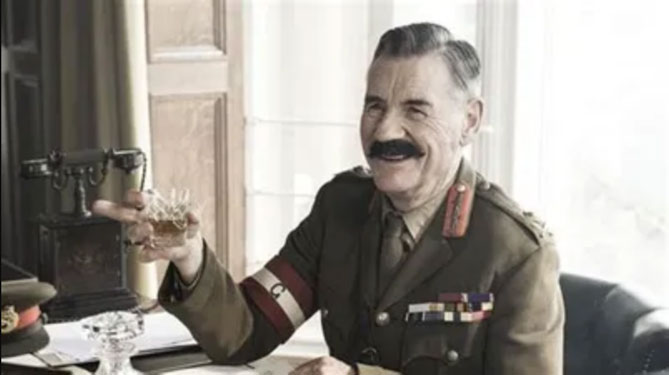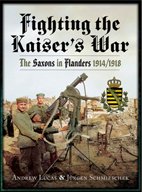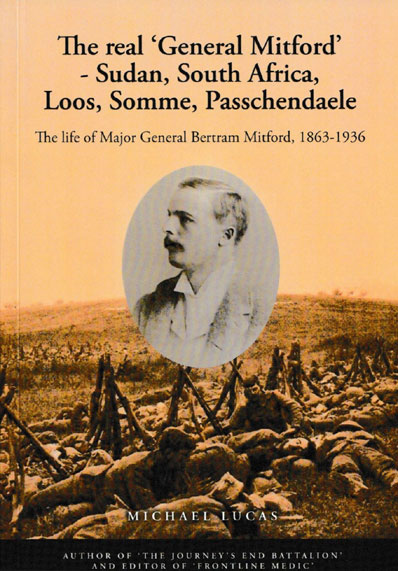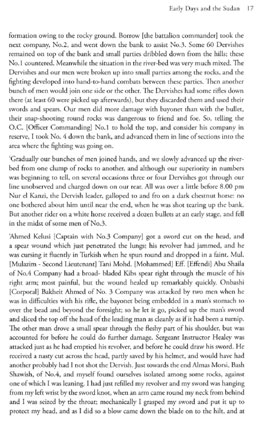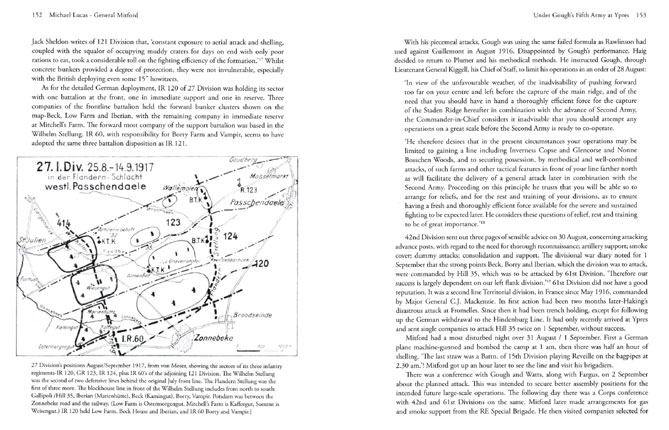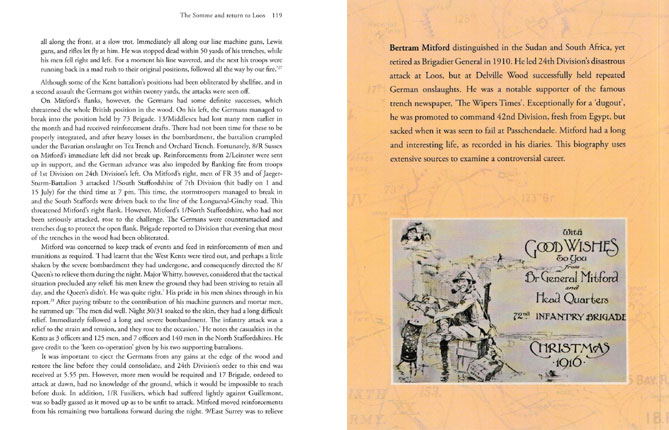Self-published 2022, 24cm x 17cm, 202 pp (including 14 maps/drawings), softback
£13 + £3 for 2nd class P&P within the UK - contact us to order now!
Available signed by the author on request; combined P&P discounts available.
View the author's addenda and corrigenda (updated January 2026)
"...[a] balanced and objective study, which offers a fine blend of narrative and analysis. The author is to be congratulated on producing such a well-researched and well-presented volume himself, given a lack of support from established publishers."
- Peter Simkins MBE (Honorary Professor in Modern History at the University of Birmingham, Vice-President of the Western Front Association and Fellow of the Royal Historical Society)
The third and latest book from my father Michael Lucas builds further on his acclaimed work on the 9th Battalion East Surrey Regiment, now looking in detail at their brigade commander - including his previous and subsequent service. The following is the author's own description of what his latest book has to offer.
Major General Bertram Reveley Mitford (1863-1936) may be remembered today for three things. After the Battle of Omdurman, with Kitchener's brother, in early 1899, he pursued the Khalifa through the Sudan wilderness where the Hicks Expedition had previously been annihilated. In the Great War he led the disastrous attack by the raw 24th Division on 26 September 1915 at Loos, on only its second day at the front: a debacle reminiscent of the Charge of the Light Brigade. Mitford's battalions advanced into a sack, with what proved to be minimal flank support, and found themselves attacking an enemy in an impregnable position. The orders he was given were, at best, out of date, yet demanding immediate action. More recently Mitford appeared, in fictional form, in Ian Hislop's and Nick Newman's television drama about the famous trench newspaper, The Wipers Times. The senior officer sympathetic to the paper, was 'General Mitford', played by Michael Palin.
I first encountered Mitford in my researches into the Great War service of 9th Battalion East Surrey Regiment, which served in Mitford's brigade. I later found that the National Army Museum held a number of his diaries. It also became clear, that, like a number of people in authority, there were sharply conflicting views about Mitford among his contemporaries. Whilst he was liked by the staff of The Wipers Times amongst others in 24th Division, he became much disliked within 42nd Division, which he was promoted to command in March 1917. Among senior officers, Lord Kitchener thought highly of him - but Sir John French did not.
Born into the poorer side of a distinguished family, Mitford had to make his own way in his chosen military career. He saw much action in the Sudan and South Africa, attended Staff College, and seemed to have a promising future. By the early age of 43, he commanded a brigade, but found wanting by Sir John French, he retired in 1910. In 1914, Mitford was one of many senior officers brought out of retirement. Many such 'dugouts' did not last long, being replaced by younger men of more recent experience. Mitford, however, in spite of often poor health, commanded 72 Brigade through eighteen strenuous months of trench warfare from September 1915. He led the brigade in the attack on the second day at Loos; and, in defence, against gas attacks at Wulverghem in spring 1916; and then in attack and defence at Guillemont and Delville Wood on the Somme in August/September 1916. Indeed, quite exceptionally, as a 'dugout' and at 54, he was promoted to command a division (the 42nd) in spring 1917. Sadly for him, though, he was sacked after six months, when the division failed to distinguish itself in the Passchendaele campaign.
Whilst there have been a number of biographies of leading generals of the Great War, there have been very few of the more junior, and particularly the less successful. Mitford was not a great general (yet certainly a physically courageous one), but, is perhaps, no less worthy of attention. There is much of interest in his experiences in the Sudan and South Africa. As for Great War service, he was no 'chateau general'. I have endeavoured to examine how he functioned as a general, over the range of his responsibilities, both major and minor. Since Mitford was most prominent at Loos and wrote much about it, I have considered his experiences and actions at that battle, in particular. I have also given much attention to how, after being rated a successful brigadier in 1916, he was judged a failure as a divisional commander in 1917. Extensive use has been made of unpublished sources, including Mitford's own diaries, as well as other contemporary British and German sources.
